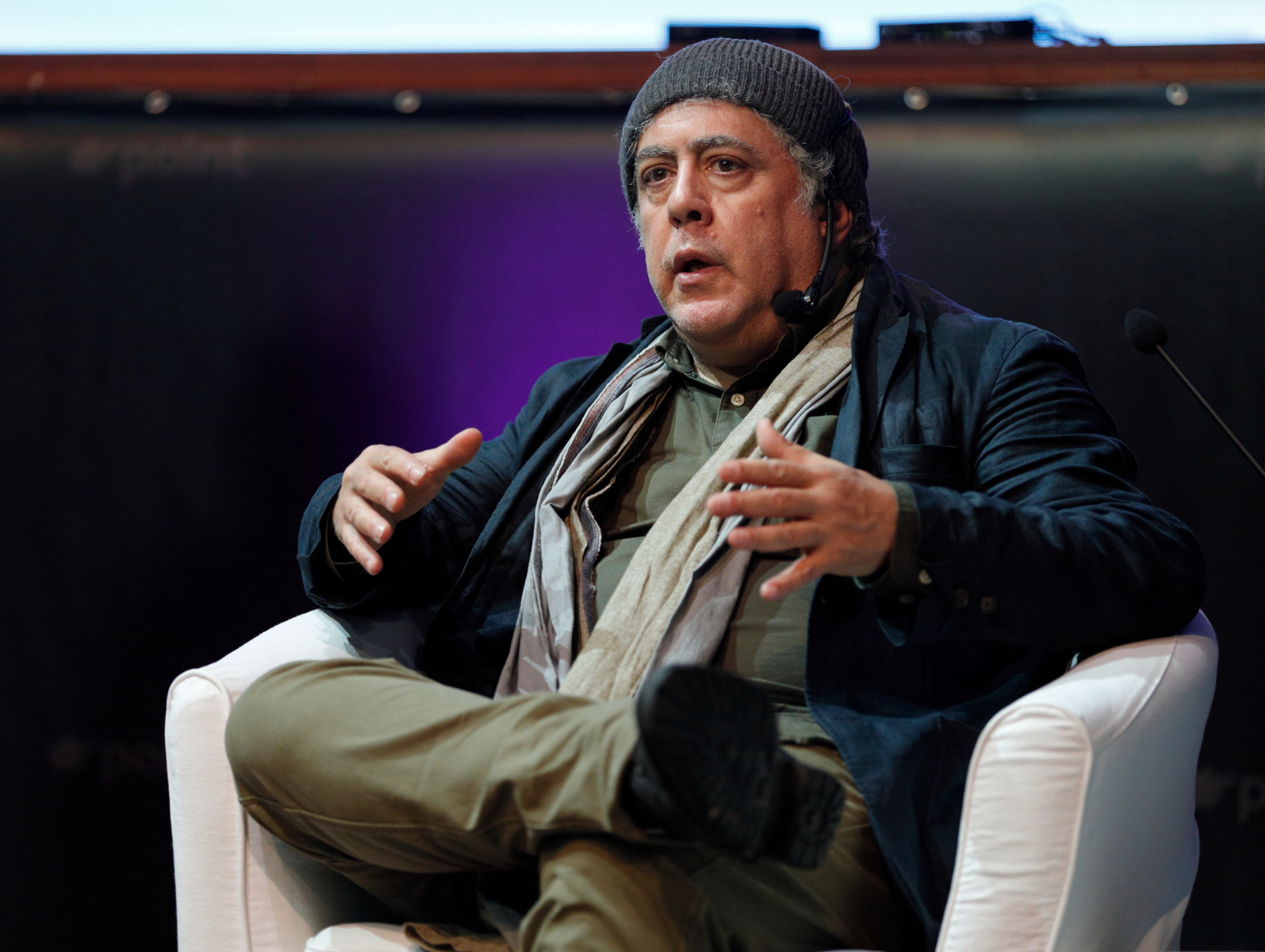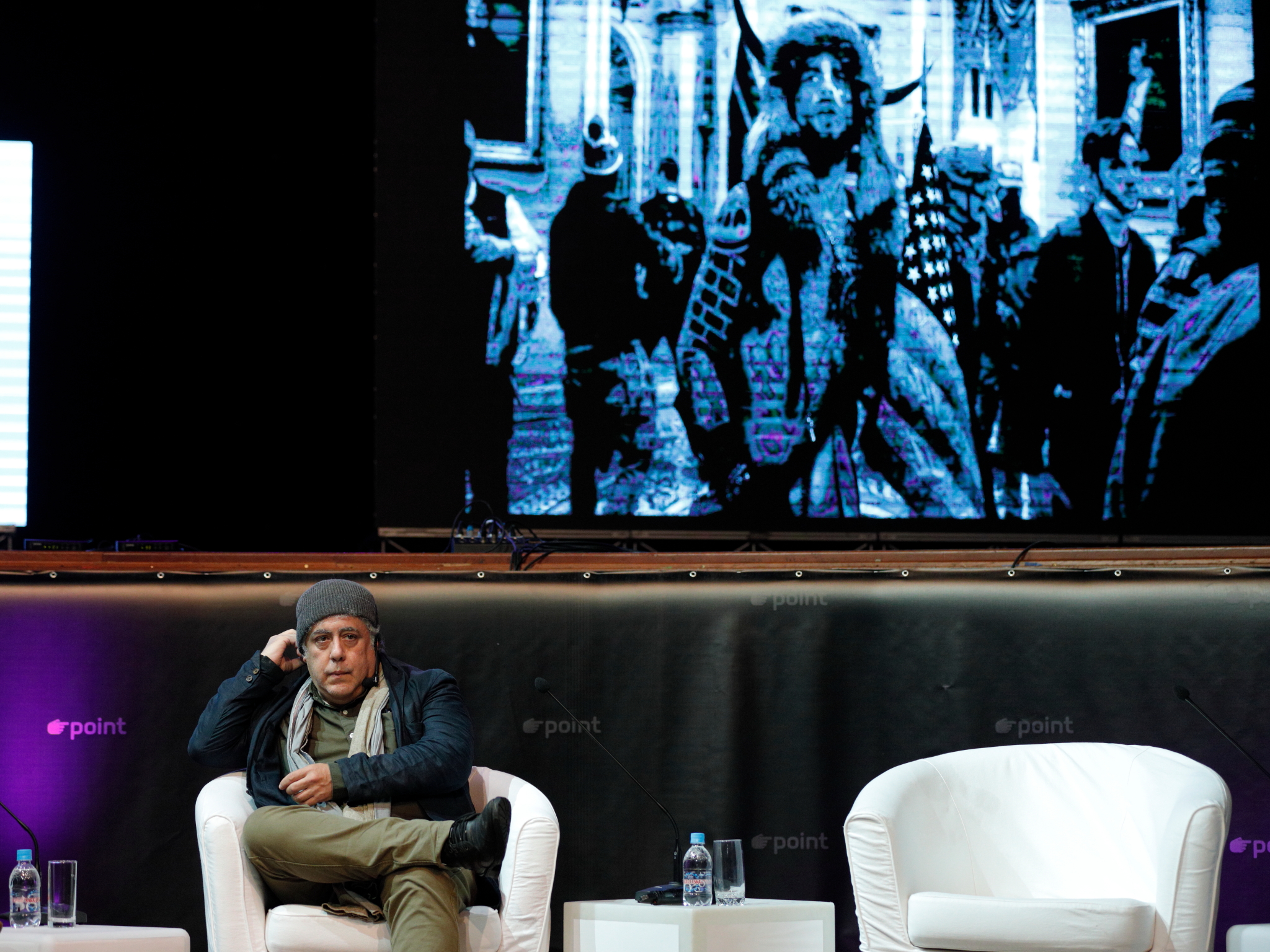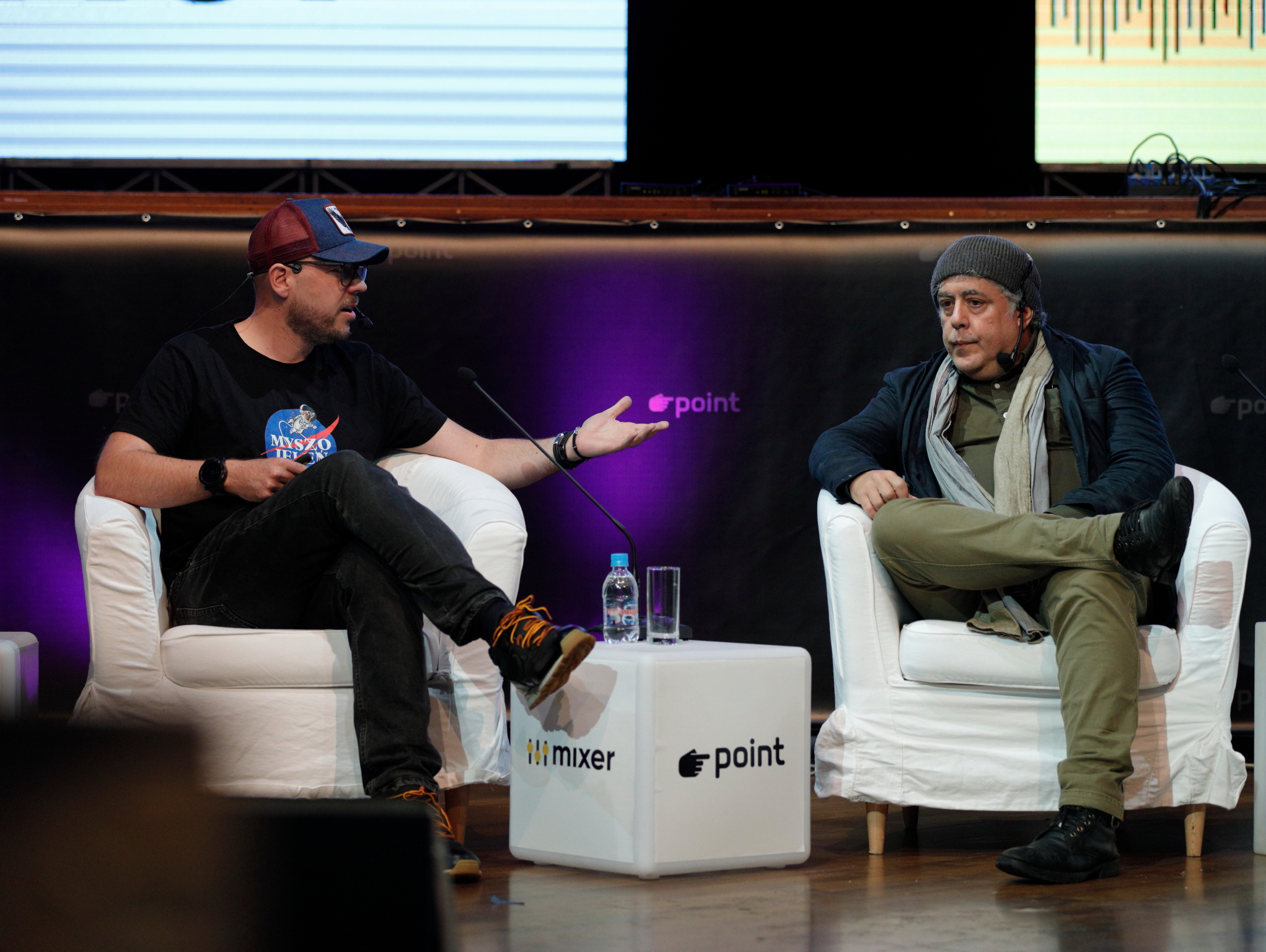Ron Haviv: “We are there to document, We’re there to show what’s happening”
The segment of the POINT Conference program, which was realized in cooperation with Mixer, began with a conversation with Ron Haviv, a war photographer who through several of his photographs shared with the audience his experiences of reporting from war zones, especially from Bosnia during the 90s, but also talked about how photographs influence people and their everyday decisions.

Photo: Vanja Čerimagić
The conversation, moderated by Mixer’s Jakub Gornicki, began with a photo taken during a protest in Washington of Jacob Chansley, also known as the so-called QAnon Shaman. As he said, this example shows how influential photography can be.
“The reason that we as photographers go to these places is to give you information about your world, the world around you, what’s happening, your place in it so you can make better decisions whether it’s voting differently in places where you can have an impact with your vote. Donating money, protesting, understanding, teaching your children – I think that the photography that I’ve done, especially the photography that I’ve done here in Bosnia, Croatia, and Kosovo, is part of the education system. It is something for people to react to when it immediately comes out, but often, there is no reaction. The photographs then become tools to instruct, remind, and hold people responsible not only for their actions but for their inaction”, Haviv said.

Photo: Vanja Čerimagić
The Capitol Hill protest also showed the power of social networks when it comes to sharing information from events.
“And this event, we also brought it up specifically because, first of all, it’s a very recent one and because it’s not that there was only just media or a couple of photographers taking photos. They were almost all civilians. They were doing a lot of visuals. Whether it was throwing photos on Instagram, TikTok, etc. So, this original reporting done by professional photographers is just one thing. But on the other hand, this event was covered from so many angles”, Haviv added.
Today, in the age of new technologies, we have the opportunity to see what we would not have seen a few decades ago, and this was demonstrated through the war in Ukraine, which is the most documented war in history. As he said, photographs are also important for the investigation of war crimes.
“Now, you have footage from military drones, journalist drones, cameras on the street, bank machines, from soldiers and civilians. The ability to put everything together to what’s happened has never occurred before. When you look at the war crimes that happened here, it was very difficult for the investigators to come back and interview and build cases to go to the Hague. Now, in Ukraine, I was with the war crimes prosecutors. We arrived in Bucha. We found the victims on the street. Witnesses came up. They started to identify and give information. These are the Russian officers. Here’s their Facebook page. Here’s their Instagram feed. Here’s the list of all the troops in their unit. So much more information exists now”, Haviv explained.

Photo: Vanja Čerimagić
At the end of the conversation, Haviv tried to explain the distinction between documenting war crimes and being more of a journalist.
“I think it’s natural, it’s part of the process. We are there to document. We’re there to show what’s happening. You’re there to spend time whether it’s for the unit or with civilians, whether it was Bijeljina or Bucha in Ukraine, to make sure that people know what’s going on. Especially today, when last year, over 1 trillion photographs were taken by us. Most of them feature a cat or your lunch. But other photographs are taken to document your life, your family and things happening in the world that people need to know about. We as photographers are always trying to have our work rise above all the other noise. To have this idea of impact. And the impact comes through you. If you as the audience don’t pay attention and don’t care or don’t believe the photographs that you’re seeing then there’s no point”, concluded Haviv.
Author: Dalio Sijah